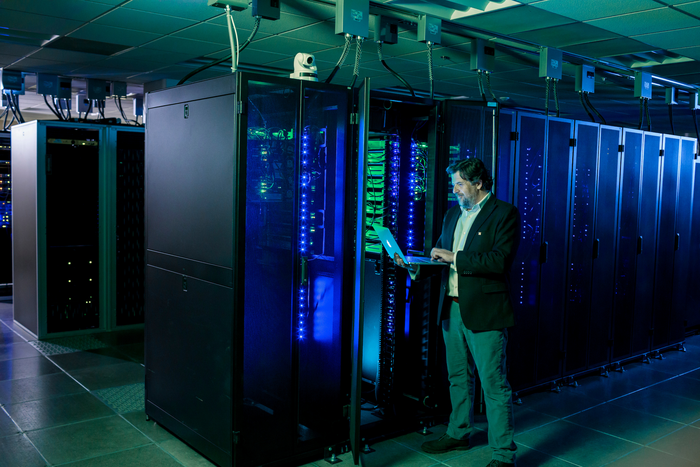As employers clamor for more data scientists and industrial and government labs take on more data-driven research, a new federal grant will help a group of Portland State faculty continue impactful research projects while also training the next generation of researchers to meet the demand.

Credit: NashCo Photo
As employers clamor for more data scientists and industrial and government labs take on more data-driven research, a new federal grant will help a group of Portland State faculty continue impactful research projects while also training the next generation of researchers to meet the demand.
The five-year, $2.1 million Research Training Group in Computation- and Data-Enabled Science grant from the National Science Foundation will allow eight Mathematics + Statistics faculty to integrate research and training for as many as five postdoctoral researchers and 30 undergraduate and graduate students at PSU.
“Everyone wants people who have data acumen, people who can do deep research but who can also work with real data,” said lead principal investigator Jay Gopalakrishnan, professor of mathematics. “We have strengths among our faculty in various areas of computational science. We are uniquely positioned to produce these new workforce additions with deep knowledge in the area where they do Ph.D. research, plus a broad understanding of current issues in data-driven science.”
Gopalakrishnan said the highly selective grant from the National Science Foundation is a testament to PSU’s ability to develop a leading program in computational mathematics and statistics.
Those efforts began in 2010 with a $3.9 million investment from alum Fariborz Maseeh supporting the recruitment of mid-career faculty from reputed universities. They continued in 2016 with the launch of the Portland Institute for Computational Science and acquisition and deployment of the first open high performance computing cluster in the state of Oregon — a valuable research and training resource for over 200 members. This coming fall, four new faculty members will join the department as part of a cluster hire in “Computational Science for a Sustainable Future.”
“We clearly showed that we have a trajectory of growth and all that began with Dr. Maseeh,” Gopalakrishnan said.
The NSF grant will support research on foundational theory in mathematics and statistics as well as in topics as diverse as simulation of optical fibers that drive today’s internet; forecasting of weather, air quality and drought; understanding progression of diseases such as cancer and dementia; and optimizing warehouse locations and wireless services.
Gopalakrishnan said the vertical integration of faculty, postdocs and students in the group allows for shared learning and mentoring. Postdoctoral researchers can act as faculty multipliers, assisting faculty and, in turn, assisting graduate and undergraduate students in carrying out the group’s research and training activities. Graduate students will work closely with faculty mentors while themselves being mentors for undergraduate students.
A major focus of the group will be providing students with opportunities to work with real-world data. Doctoral students will work in a consulting lab on projects from regional clients and have at least two external internships. Postdocs and selected undergraduates will also have the opportunity to participate in client projects and lab activities.
Other elements of the research group include a new seminar series that favors dialogue over monologue, the inclusion of a top external faculty member on each doctoral student’s Ph.D. committee, summer boot camps to overcome anticipated lack of trainee prerequisites, and city-based and community-serving research experiences for undergraduates.
“These are all pretty radical ideas that this grant is enabling us to embark on,” Gopalakrishnan said. “I don’t know of any math department in the country with all the innovative training structures we proposed, like the consulting lab, the experimental seminars, the community service aspects, the boot camps, etc.”




